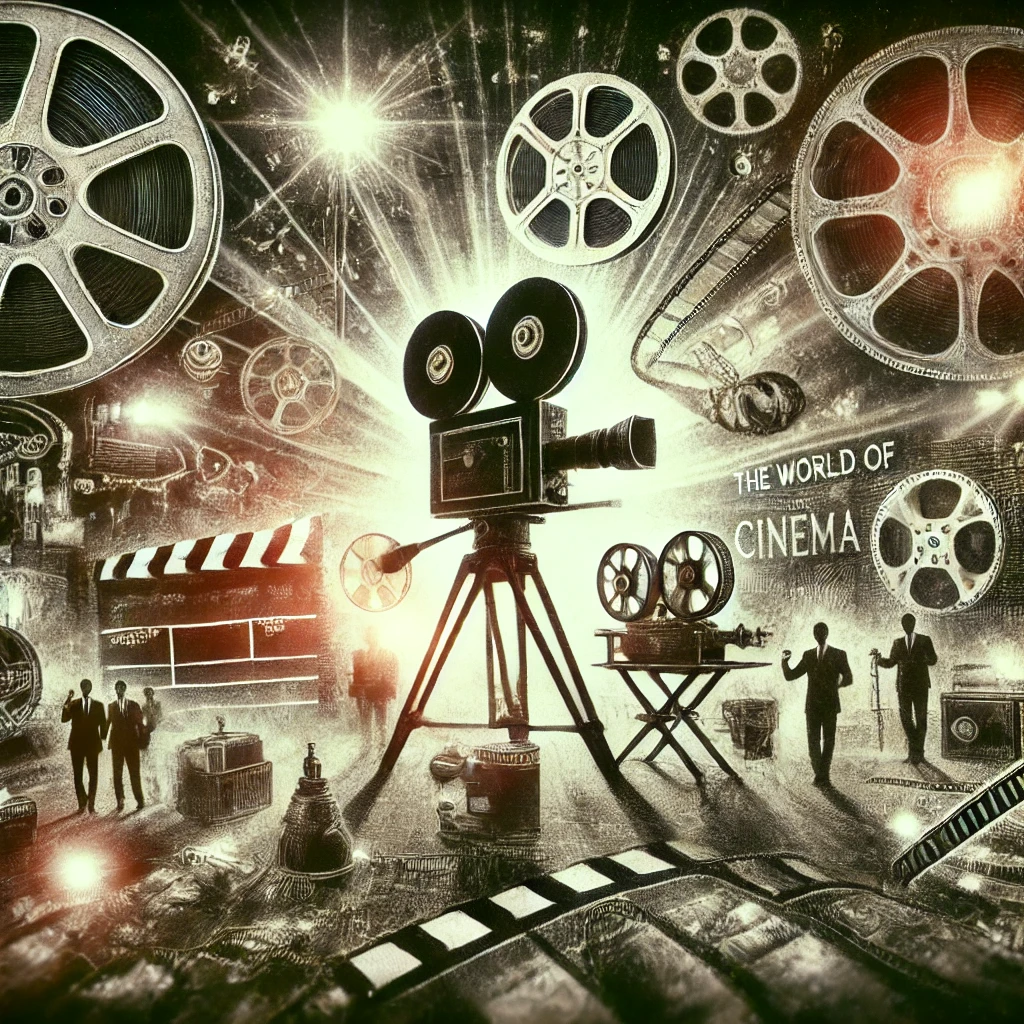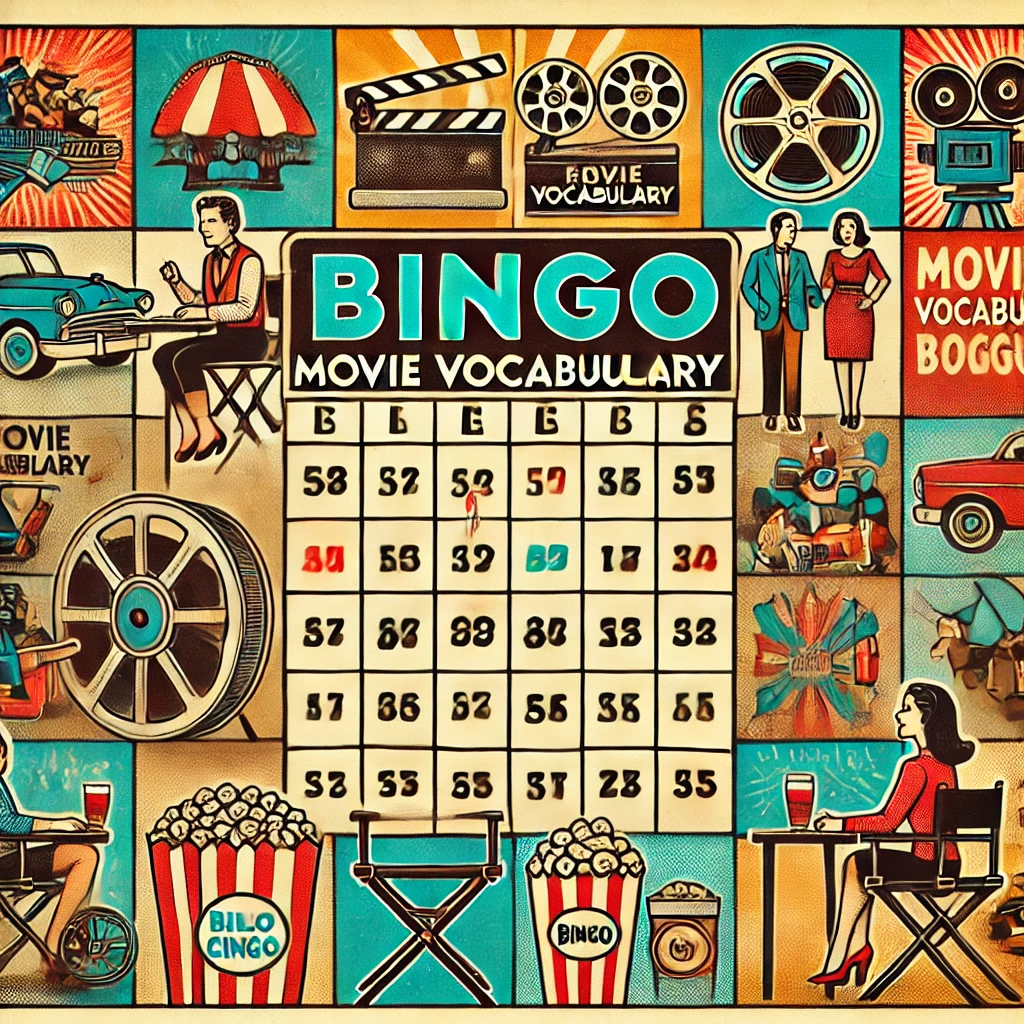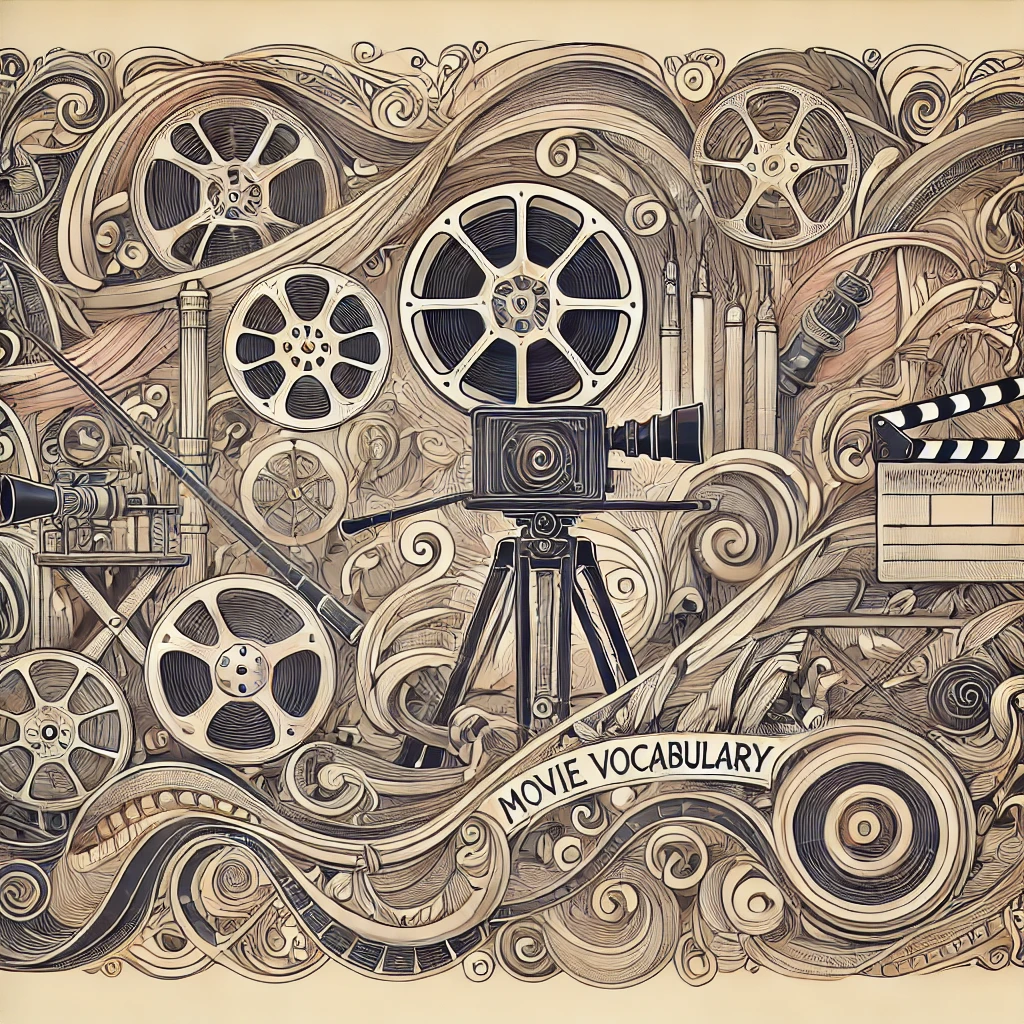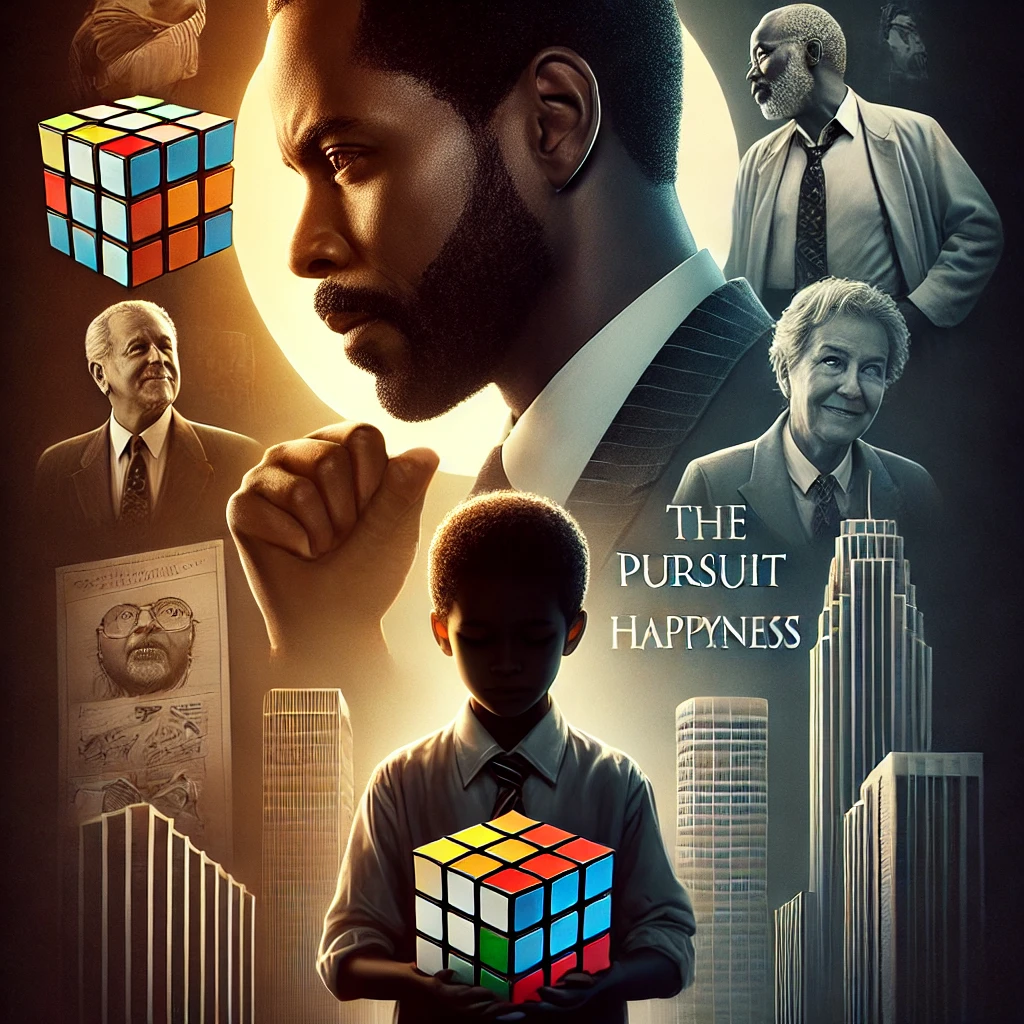The world of cinema

Learning goals
Understand Movie Vocabulary: Learn the meanings of advanced movie-related terms.
Apply Vocabulary in Real Life: Use movie vocabulary accurately in discussions and critiques.
Enhance Communication Skills: Improve your ability to express opinions and analyses about films.
Expand Cultural Knowledge: Gain insights into the film industry and its terminology.
Key Vocabulary
Genre: A category of film characterized by similarities in form, style, or subject matter.
- Example: “My favorite movie genre is science fiction.”
Cinematography: The art of making motion pictures, including the camera work and lighting.
- Example: “The cinematography in that movie was stunning, especially the use of light and shadow.”
Plot: The sequence of events that make up a story in a film.
- Example: “The plot of the movie was intricate and kept me on the edge of my seat.”
Soundtrack: The recorded music accompanying and synchronized to the images of a film.
- Example: “The soundtrack of the film was so emotional, it really enhanced the story.”
Director: The person responsible for the creative aspects of a film, including overseeing the cast and crew.
- Example: “Steven Spielberg is a renowned director known for his blockbuster films.”
Protagonist: The main character in a movie, often a hero or heroine.
- Example: “The protagonist of the film faced many challenges but ultimately prevailed.”
Antagonist: A character or force in conflict with the protagonist.
- Example: “The antagonist in the movie was very well-developed and complex.”
Special Effects: Visual or audio effects used to create illusions or enhance scenes.
- Example: “The special effects in the movie were so realistic, they brought the fantasy world to life.”
Script: The written text of a film, including dialogue and instructions for actors and crew.
- Example: “The script was well-written and full of witty dialogue.”
Editing: The process of selecting and assembling the various shots into a coherent sequence.
- Example: “The editing was seamless, making the movie flow smoothly from scene to scene.”
Examples
Discussing a Movie: “I loved the cinematography in ‘Inception.’ The director did an excellent job.”
Writing a Review: “The plot was engaging, but the soundtrack was the real standout.”
Analyzing a Scene: “The protagonist’s struggle against the antagonist was highlighted by the brilliant editing.”
Recommending a Film: “If you enjoy action movies, you’ll appreciate the special effects and fast-paced plot.”
Class Presentation: “For my project, I analyzed the script and character development in ‘The Godfather.'”
Learning activities
EGB
Movie Genre Match-Up (20 minutes)
Objective: Learn and categorize different movie genres.
Instructions:
- Preparation: Create a list of movie genres and a list of movie titles.
- Task: In small groups, match each movie title with the correct genre.
- Class Review: Discuss the matches and why each movie fits into its genre.
- Example: “Titanic” – Romance/Drama, “Star Wars” – Science Fiction.

Movie Vocabulary Bingo (20 minutes)
Objective: Reinforce understanding of movie vocabulary through a fun game.
Instructions:
- Preparation: Create bingo cards with different movie vocabulary terms.
- Game: As you call out the definitions, students mark the corresponding terms on their bingo cards.
- Winner: The first student to get a bingo (a line of marked terms) wins a prize.
- Example: Call out “The art of making motion pictures” – Students mark “Cinematography.”

BGU
Movie Review Writing (20 minutes)
Objective: Use movie vocabulary in writing a review.
Instructions:
- Task: Write a short review of a movie you recently watched, incorporating at least five vocabulary terms.
- Peer Review: Exchange reviews with a partner and provide feedback on vocabulary usage.
- Class Sharing: Share some reviews with the class and discuss the films.
- Example: “The cinematography in ‘Interstellar’ was breathtaking, and the plot kept me intrigued throughout.”

Role-Play: Movie Critic (20 minutes)
Objective: Practice speaking skills and using movie vocabulary in discussions.
Instructions:
- Pairs: Pair up and take turns being the movie critic and the interviewer.
- Task: The critic reviews a movie, using vocabulary terms, while the interviewer asks questions to prompt further details.
- Class Presentation: Some pairs present their role-play to the class.
- Example: “As a critic, discuss the special effects in ‘Avatar’ and how they contributed to the overall experience.”

EGB & BGU ACTIVITY: Discover Your Own Movie Vocabulary
Objectives:
- Expand Vocabulary: Develop a personalized list of advanced movie vocabulary.
- Improve Research Skills: Enhance your ability to find and understand new vocabulary independently.
- Apply Vocabulary: Use newly learned movie vocabulary in discussions and writing.
- Foster Collaboration: Work collaboratively to share and learn from peers.
Instructions:
Part 1: Research and Discovery (20 minutes)
- Objective: Identify and understand new movie-related vocabulary terms.
- Task: Individually, use the internet, film reviews, or movie-related articles to find 10 new movie vocabulary terms that are not in the provided list.
- Details:
- Definition: Write down the definition of each term in your own words.
- Usage: Find or create a sentence using each term to demonstrate understanding.
- Example: If you find the term “Diegetic Sound,” define it as “sound that originates from within the film’s world,” and use it in a sentence like “The diegetic sound of the clock ticking added tension to the scene.”
Part 2: Group Sharing and Compilation (20 minutes)
- Objective: Share and expand your vocabulary list through collaboration.
- Task: Form small groups (3-4 students). Each student shares their list of 10 new terms with the group.
- Compilation:
- Combine the individual lists to create a comprehensive group list.
- Ensure each term has a clear definition and example sentence.
- Each group member should learn the new terms contributed by their peers.
Part 3: Class Discussion and Presentation (20 minutes)
- Objective: Present and discuss new vocabulary terms with the class.
- Task: Each group selects five of their most interesting or useful new terms to present to the class.
- Presentation:
- Define each term clearly.
- Provide example sentences to show how the terms are used.
- Class Discussion:
- Engage the class in a discussion about the terms presented.
- Encourage questions and further exploration of the terms.
Additional Tips for Success:
- Research Tools: Use reliable sources such as film critique websites, movie blogs, and online dictionaries specializing in film terminology.
- Note-Taking: Keep your notes organized and clear for easy sharing with your group.
- Engagement: Actively participate in group discussions and presentations to maximize learning.

Here are some engaging and educational movies. These films are great for improving English skills and understanding different accents, vocabulary, and cultural contexts.




